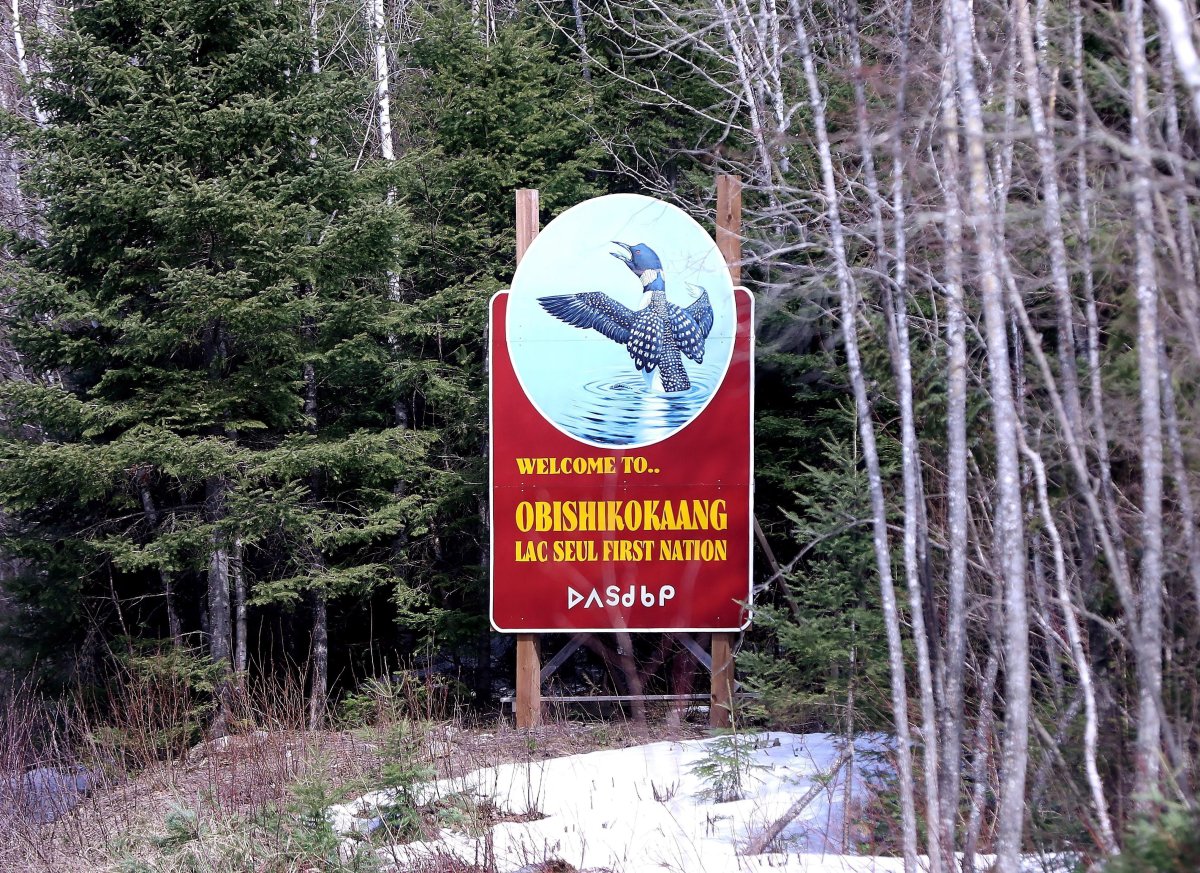The Canadian Armed Forces (CAF) says six rangers have been deployed to help First Nation communities near Dryden, Ont., several days after the community declared a state of emergency over rapidly rising COVID-19 cases.

Public Safety and Emergency Preparedness Minister Bill Blair tweeted Wednesday the federal government had approved Ontario’s request for assistance for Lac Seul First Nation. The rangers will be stationed in Dryden until May 18.
“We will do whatever it takes, for as long as it takes, to support Canadians in the fight against #COVID19,” the tweet read.
Lac Seul First Nation made the emergency declaration on May 1. Health officials had detected one new positive COVID-19 case on Wednesday, bringing the total confirmed infections among Lac Seul Nation total to 17.
One day before the announcement, officials introduced a 14-day Code Red lockdown that is expected to last until May 14 in an effort to curb the spread of the virus.
Under the lockdown, residents have been urged to leave their homes solely for essential reasons such as groceries, picking up medication, doctors’ appointments and to get vaccinated.
CAF said those deployed will be tasked with providing support that includes transportation assistance, delivering food and supplies, humanitarian assistance as well as supporting a public awareness program on health measures in effect.

“Canadian Ranger support has been requested for a period of 14 days but will be assessed and will continue until the situation has stabilized and is manageable through local and provincial resources,” the statement read.
Experts say Indigenous communities have long been at higher risk of severe infections due to a lack of government funding leading to systemic health-care system inequalities, chronic malnutrition, and underlying health conditions which can make a person more susceptible to COVID-19 such as obesity, hypertension, diabetes and cardiac disease.
“A lot of those things put Indigenous people at risk and then on top of it, if someone gets sick, often in these communities you don’t have larger health centres where there are doctors and nurses that can address the needs,” said Dr. Anna Banerji, an infectious diseases specialist at the University of Toronto’s Temerty Faculty of Medicine.
“If someone gets sick and starts deteriorating then you need to have a MedEvac (medical evacuation) team fly in, basically stabilize that person and fly them out.”
- Life in the forest: How Stanley Park’s longest resident survived a changing landscape
- ‘They knew’: Victims of sexual abuse by Ontario youth leader sue Anglican Church
- Carbon rebate labelling in bank deposits fuelling confusion, minister says
- Buzz kill? Gen Z less interested in coffee than older Canadians, survey shows
Due to the overcrowding rampant among Indigenous communities, Banerji said there is little room for residents to isolate, which could make it easier for COVID-19 to circulate.
“Some of these communities don’t have access to rapid testing,” she added. “If you have to take a test and ship it out of town, that could take a week or so. In the meantime, the virus can spread.”
As of Wednesday, the federal government has reported 27,564 confirmed cases of the virus, 319 deaths and 1,225 hospitalizations on First Nation reserves.

Despite this, the number of active confirmed COVID-19 cases within Indigenous communities has declined by 80 per cent since mid-January, primarily due to a concentrated effort to prioritize more often more remote, at-risk communities.
Minister for Indigenous Services Marc Miller said Tuesday that Indigenous communities were “keeping up the fight against COVID-19.”
However, he said, “alarming outbreaks in some communities are painful reminders to maintain public health measures. This is not over.”
As of April 30, Miller said almost 370,000 COVID-19 vaccine doses had been administered to more than 661 First Nation communities, accounting for over 72 per cent of Indigenous adults living in the territories and 80 per cent of Indigenous adults in Inuit communities.




Comments